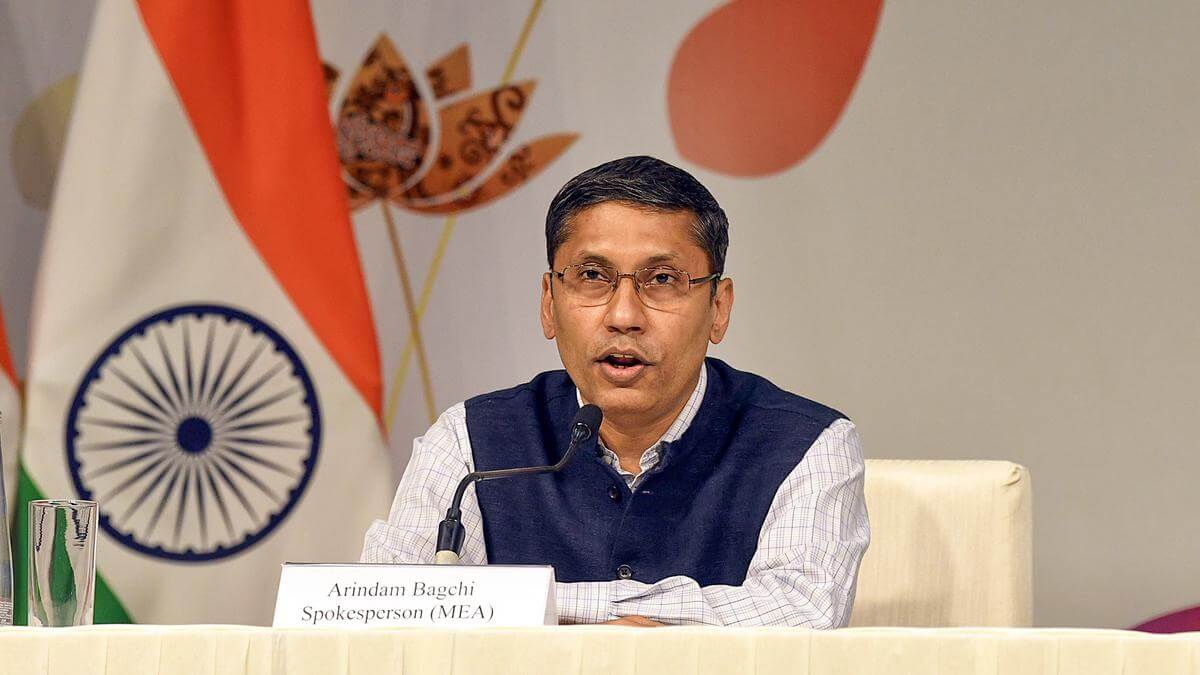On Monday, India strongly refuted UN Human Rights Commissioner (UNHRC) Volker Türk’s remarks regarding the alleged discrimination against minorities in the country, and said it was dedicated to protecting the human rights of all. In his global update at the 55th session of the Human Rights Council, Türk had highlighted the increasing restrictions on the civic space in India ahead of the upcoming polls.
Targeting of Human Rights Defenders, Discrimination against Minorities
“In India, with an electorate of 960 million people, the coming election will be unique in scale,” Türk said in his address. He appreciated the country’s secular and democratic traditions and its great diversity.
However, he highlighted his concerns regarding increasing restrictions on the civic space in India, saying that human rights defenders, journalists and perceived critics were being targeted in the country. He also expressed concerns regarding hate speech and discrimination against minorities, especially Muslims.
India's Statement in today's General Debate at #HRC55 pic.twitter.com/SjrXikVAbB
— India at UN, Geneva (@IndiaUNGeneva) March 4, 2024
“It is particularly important in a pre-electoral context to ensure an open space that respects the meaningful participation of everyone,” he asserted. Türk welcomed the Indian Supreme Court’s decision last month to strike down the controversial electoral bonds scheme. Additionally, he appreciated the move for upholding the right to information and transparency.
India Dismisses Remarks
In response, India strongly dismissed the High Commissioner’s comments about the Indian elections as “unwarranted.” India’s Permanent Representative to the UN in Geneva, Arindam Bagchi, said that the concerns expressed by Türk do not reflect the reality of the largest democracy in the world.
“In any democracy, argumentation is natural. It is imperative that those in positions of authority do not let their judgments be clouded by propaganda,” the envoy said. He highlighted that plurality, diversity, inclusivity and openness are at the core of India’s democratic polity and its constitutional values.
The Indian envoy further remarked that the Indian electoral process has been characterised by a high degree of people’s participation and complete faith in the electoral mandate by all. “We are privileged that many across the world seek to learn from our experience and aspire to emulate it,” he added.
Bagchi reassured that, just as in numerous occasions in the past, the Indian people will freely exercise their vote to choose a government that they believe can best “give voice and flight to their aspirations” in the upcoming elections as well.
Dedicated to Protect Human Rights of All
“India, as home to 1/6 of humanity, has led from the front with an enduring dedication to promotion and protection of human rights for all,” Bagchi said, countering allegations of discrimination against minorities. He noted that, in this endeavour, India’s approach has been guided by its civilisational ethos of viewing the world as one family.
The envoy underlined India’s response to the pandemic, its disaster relief efforts and development initiatives across the world and its G20 presidency last year as manifestations of this spirit. He also directed the meeting’s focus towards issues like reform of the multilateral governance structures.
Bagchi called India “a voice of reason” that has been consistently calling for dialogue and diplomacy when the world is ridden with conflicts and war today. He emphasised the need to give peace a chance so that the vulnerable can hope for “a better future where their basic needs are met and their human rights protected.”

